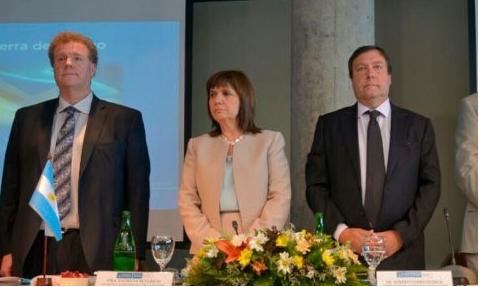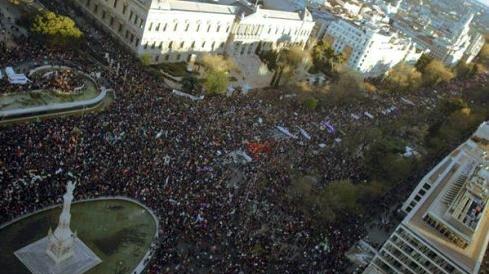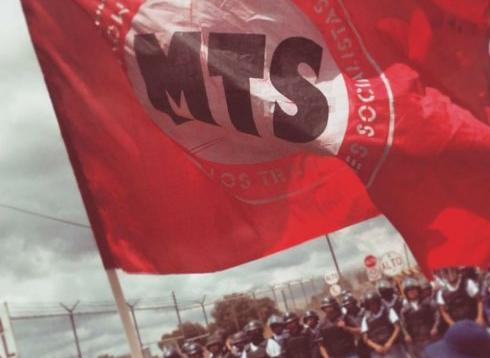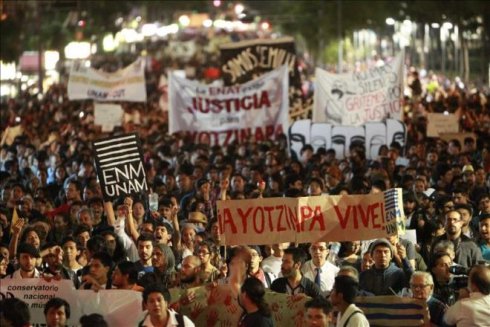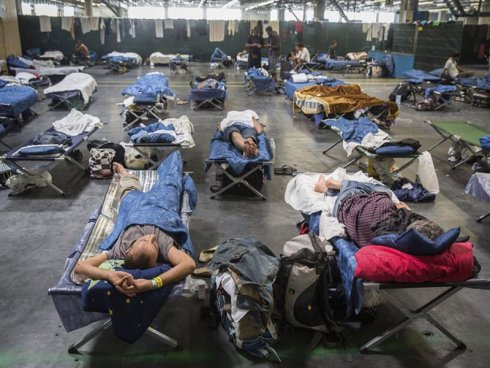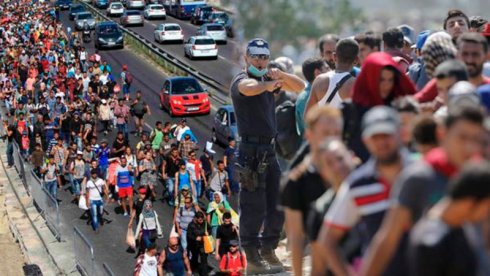Protests at the so-called
Free University of Berlin
16/06/2012
June 2012
Last Wednesday (June 6) the Presidential Boad (Präsidium) of the Free University (FU) of Berlin temporarily looked like a besieged fortress: Several hundred students rushed to the entrance to get inside the building. Reason for the siege is a new framework of examination regulations, which the Presidential Board drafted without the inclusion of student committees. This framework includes that examinations can only be repeated twice and that students can be forced to attend compulsory consultation sessions from the third semester onwards. Michael Beron of the student representative body (AStA) sees in this framework an attempt to generate "an enormous pressure to perform and conform".
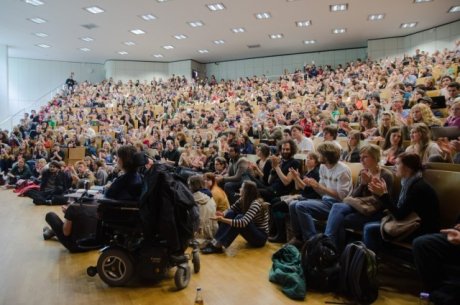
To discuss this issue around 700 students gathered for a general assembly last Wednesday. They passed a letter directed at the university administration demanding round table talks. They also wanted to hand this letter over personally through a demonstration. But when the blinds were pulled down and the doors locked at the Presidential Board, medieval scenes accured. During these at least one student was injured by ’security staff’. "This is already the third time this semester, that people who make demands therefore get punshed in the face", said a student through a megaphone. Already in November the university president Peter-André Alt let 70 students who occupied a lecture hall to be evicted by police after only a few hours.
In the end a discussion with representatives of the Presidential Board, who consider themself to be ’ready for talks’, did take place. But they rejected the participation in talks on a round table as well as any other specific suggestion for proper talks. During that opporunity also the university chancellor Peter Lange admitted that when he was a student the pressure to perform was significantly lower. But according to him times have changed - at other universities such restrictive measures exist as well.
With these remarks they clearly state that the new framework of examination regulations is indeed part of an overall social process - pressure to perform, insecurity and top-down control spread even further within the world of employment than inside the academy: precariousness, worsening of working conditions, decreasing of wages, Hartz IV (reforms on temporary benefits for unemployed), and so on. Since for example an increasing number of subcontract workers are employed in the canteen, who don’t have a staff council representative body or anything similar, the boards are also being undermined for the workers at the university. Therefore we can’t restrict our protest to take place only at the university. Only if all those affected by this process - students, workers, unemployed - resist this together, we can generate enough pressure to have our demands met.
Although representatives of the presidential board claimed to be ’ready for talks’ at the last moment, this could not deceive one of the fundamentally undemocratic character of the university. This is not just about professors having the absolute majority of votes - like in a feudal society ("we are all equal, but they are more equal than we are", that’s how a student paraphrased Orwell during the rally). One problem with such a ’dialogue’ is also that students need to sacrifice their increasingly declining free time for such discussions, while the bureaucrats are being paid to attend them. They can converse endlessly, while pushing their plans in the backroom.
A further advantage the representatives of the Presidential Board enjoy is their long-time experience - they know better how student protests work. Student rights were never won through negotiations with those in power. Also the suspension of compulsory attendance at universities in Berlin was the result of strikes and occupations in the year 2009-10; tuition fees could be pushed back again due to students blocking highways and occupying railway stations; even now we, at the FU, needed a militant demonstration joined by hundreds of students to push the Presidential Board to talk to us in the first place.
That’s why the struggle to prevent the implementation of the new framework of examination regulations will not just take place within the boards, but it takes a political fight, which exerts a lot of pressure on the university Presidential Board through rallies, strikes and occupations. On June 20 the Academic Senate of the FU (which is dominated by an absolute majority of professors) is suppose to make a decision on the draft.
originally published by Wladek Flakin, "Waffen der Kritik", June 9th 2012 on de.indymedia.org
translated by Mo
